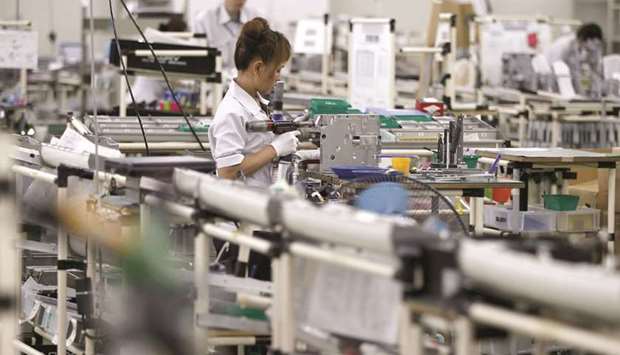Concerns over Japan’s trade disputes with the United States remain ahead of new trade talks between Tokyo and Washington in the coming month, with President Donald Trump’s protectionist trade policies seen raising risks to the economic outlook.
Industrial production was seen down 0.4% in June from the previous month after it fell 0.2% in May, the poll of 16 economists found.
“Although an inventory adjustment of electronic parts and devices dragged down the industrial production, domestic and overseas demand are likely to remain supportive,” said Yoshimasa Maruyama, chief market economist at SMBC Nikkei Securities.
“It remains on the moderate recovery trend though it is not strong.”
Analysts noted an earthquake in western Osaka area in June, which forced some companies to halt factories temporarily, may have also impacted output.
The trade ministry will publish the factory output data at 8:50am on July 31, Japan time.
Retail sales, which will be announced on Monday, are expected to show a 1.6% rise in June from a year ago, up for an eight straight month, the poll showed.
“High temperature helped increase demand for seasonal products and sales of clothes and items such as cosmetics rose as department stores’ summer discount sales started earlier,” said Yusuke Koshiyama, economist at Mizuho Research Institute. Japan will also issue labour market figures next week.
The jobless rate is seen at 2.3% in June, up from 2.2% in May which was the lowest in over 25 years.
The poll found the jobs-to-applicants ratio stood steady at 1.60% in June, staying at the highest level since 1.64 in January 1974, the poll found.
The government will release the jobs data at 8:30am on July 31.
Economists also forecast the Bank of Japan will retain its short-term interest rate at minus 0.1% and the 10-year government bond yield target at around 0% at the July 30-31 rate review.
However, the BoJ could also consider changes to its massive stimulus programme to make it more sustainable, such as allowing greater swings in interest rates and widening its stock-buying selection, people familiar with its thinking said.

